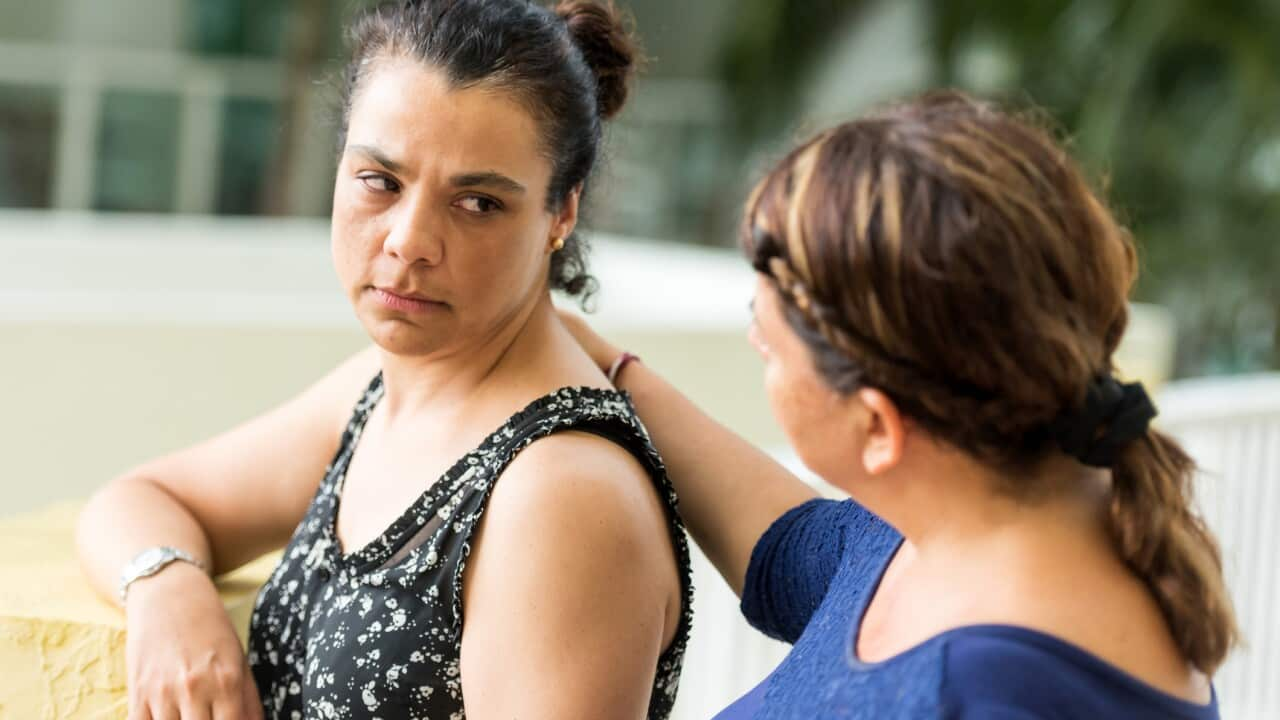One of the traits of the people of my parents’ homeland of Cyprus is they treat strangers like people they’ve known for years. This is a trait I inherited, which is a part of my personality: who usually need time to develop deep friendships.
The downside to this trait is that I have the tendency to invest time and energy in people too quickly and it hurts deeply when a friendship doesn’t work out the way you had hoped. It leaves you feeling let down and perplexed.
Relationship break-ups can be harder for people from non-English speaking backgrounds living in Australia when the fight is with a family member, because family is often tied in with our identity.
It’s happened to me with friendships I’ve had since I was a teenager and with family members I’ve known since I was born, where things just weren’t flowing anymore.
But relationship break-ups can be harder for people from non-English speaking backgrounds living in Australia when the fight is with a family member, because family is often tied in with our identity. The community, to a newly arrived immigrant, can often act as a secure, safety net. So being estranged from a family member when you have a migrant background can often be traumatic.
When we were children
Sometimes we can be inseparable with someone as a child and then adulthood sweeps in and issues that were once easily let go of are suddenly deal breakers. I’d like to stay close to all the people who played a significant role in my life, but logistically I can’t. I do get very nostalgic.
Christine Bagley-Jones, a psychologist with over 23 years of experience tells me that children appear to be able to handle the end of friendships better than adults.
Saying goodbye to old relationships is not dissimilar to saying goodbye to other things that we may have grown out of in our life.
”This may be in part due to the fact that kids are naturally more resilient and don't think as deeply about the impact of a friendship being over," she says. "They tend to have more opportunities to make new friends, which gives them an ongoing sense of hopefulness and belief that life is ever-changing and new friendships are easily available.
“As adults, we have a less naive appreciation of the world and perhaps a more sober awareness of how difficult lasting genuine friendships can be to establish.”
Ethics, politics and lifestyle shape us as adults and this can often lead to personality clashes with people we once loved spending time with. But Bagley-jones says this is natural.
“It's healthy to move and adapt our friendship circles in accordance to who we are as we grow. Saying goodbye to old relationships is not dissimilar to saying goodbye to other things that we may have grown out of in our life such as certain past times or where we may choose to live. Ultimately it's a sign of maturing.”
Breaking up, letting go, grieving and moving on
Breaking up can be difficult, which is why many of us avoid it. But if you’ve tried your best to heal a relationship and nothing is working, you may be left with no other choice but to cut ties, even though you may feel like a failure.
Holding on though can also be detrimental to our wellbeing and growth. “Humans are creatures of habit and therefore resist change,” says Bagley-Jones. “Life is short and it's vital to make good choices about how you spend your time and who you associate with for that will significantly impact your overall quality of life.”
So how do we break-up when we know it’s time to do so? “When telling someone ‘it's over’, be sure to be authentic and honest, while also being as respectful and gentle as possible,” she says.
Respect the other party's right to make a decision to terminate the relationship and find a way to honour their choice.
“If it will be helpful to share the reasons why you want to terminate the friendship then do so but only if it assists the other party in understanding and gaining closure. Be sure not to be unnecessarily hurtful. It's also beneficial to share the positive aspects of the relationship and the value it has held up until this point.”
Being the one who is broken up with is often a tough experience.
“It's not healthy or realistic to force someone into a relationship they no longer have an interest in, so the best thing you can do is allow yourself time to accept the reality that it's over," Bagley-Jones says.
“This may be a painful grieving period, so be gentle with yourself and understand the various stages of grief so that you can be prepared for the suffering that may lie ahead. Respect the other party's right to make a decision to terminate the relationship and find a way to honour their choice.
"Wherever possible look for any learning opportunities there may be regarding your behaviour that may benefit from change in the future. Try to see this also as a new opportunity for yourself to be available for fresh relationships as you will now be free to pursue other connections.”
How to embrace the future
Sometimes, relationships clashes need space and time before either party is ready to reconnect and reconcile. I’ve had let go of family and friends thinking the relationship was over only to have them re-emerge in my life years later, after I’ve changed and they’ve changed and we somehow match up again.
So do you make the first steps in reconciliation? “Reflect on the cause of the rift in the first place. Consider possible solutions and own your part in the situation,” says Bagley-Jones.
While it's important to remain assertive, be clear not to take responsibility for actions that aren't your fault.
“It is key to remain humble and open to how both of you could enjoy the relationship again. While it's important to remain assertive, be clear not to take responsibility for actions that aren't your fault, it's vital that the other person understands that you are willing to change in order to have a better relationship”.
For access to private psychologists in your area, contact the APS Find a Psychologists Service on the toll free number 1800 333 497 or conduct your own search on the APS website at .
Koraly Dimitriadis is a freelance opinion writer, poet, filmmaker, theatremaker and the author of Love and F**k Poems.
The ground-breaking new six-part documentary series, , will debut on SBS on Wednesday 6 September at 8.30pm. Each episode, airing weekly on Wednesdays at 8.30pm, will be available to view on SBS On Demand after broadcast.






